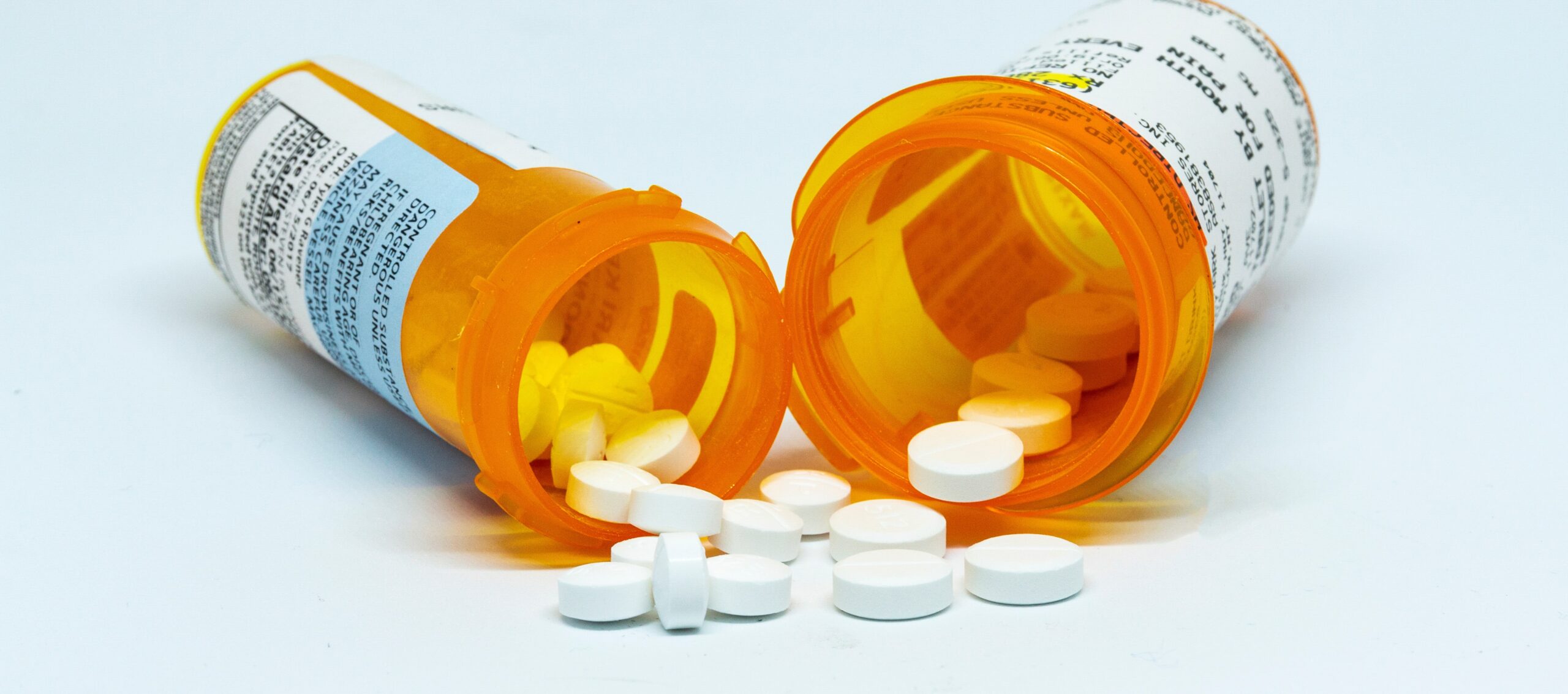While prescription drugs can be beneficial in treating various illnesses and chronic conditions, there is the potential for misuse with certain medications. It is essential to understand these risks associated with some of the most addictive prescription drugs, whether prescribed by a healthcare provider or used illicitly without a prescription.
#1. ADHD Drugs
ADHD medication is prescribed to individuals diagnosed with attention deficit hyperactivity disorder to help manage symptoms such as inattention, hyperactivity, and impulsivity. While these drugs are generally safe and effective when used as prescribed, they have the potential for abuse and addiction if misused or taken without a prescription.
#2 Opioids
Opioid painkillers, such as oxycodone, hydrocodone, and fentanyl, are powerful medications used to treat moderate to severe pain. While they can be highly effective for managing pain when used as prescribed, they also carry a high risk of addiction due to their ability to produce a euphoric effect.
Opioids work by binding to opioid receptors in the brain and spinal cord, effectively blocking pain signals while increasing feelings of pleasure and relaxation. Individuals may develop tolerance and require larger amounts of the drug to achieve the desired effects when taken in higher doses or for extended periods. This can lead to dependence and addiction as the body becomes reliant on opioids just to function normally.
#3. Benzos
Benzodiazepines, commonly referred to as benzos, are a class of medications primarily prescribed for the treatment of anxiety disorders and insomnia. These drugs work by enhancing the activity of gamma-aminobutyric acid (GABA), a neurotransmitter that helps regulate brain activity.
Benzodiazepines produce feelings of relaxation and calmness, which can lead to psychological dependence and cravings. As such, they carry a high potential for addiction if misused or taken in higher doses than recommended.
#4. Sleep Medications
Sleep medications, also known as hypnotics or sedative-hypnotics, are commonly prescribed to individuals who have difficulty sleeping. These medications slow down brain activity and promote relaxation to help induce sleep.
Sleep medications can be beneficial for short-term use when treating insomnia or other sleep disorders. However, they can be highly addictive from their sedative qualities when misused or when they are not needed.
#5. Stimulants
Stimulant drugs increase activity in the central nervous system, resulting in heightened alertness and wakefulness. Stimulants increase the levels of certain neurotransmitters in the brain, such as dopamine and norepinephrine. They often cause feelings of euphoria and increased energy, especially when misused, leading to continued use, dependence, and eventual addiction.
#6. Barbiturates
Barbiturates are a class of sedative-hypnotic drugs that depress the central nervous system. They enhance the activity of GABA. By increasing GABA levels, barbiturates induce sedation, and relaxation, and can even produce anesthesia at higher doses.
Despite providing therapeutic benefits such as inducing sleep or reducing anxiety, barbiturates also have a significant potential for abuse and addiction. They can cause feelings of euphoria, which can lead to dependence and misuse.
#7. Muscle Relaxants
Muscle relaxants are medications prescribed to individuals who experience muscle spasms or tightness due to conditions such as muscle strains, sprains, or musculoskeletal disorders. While they can provide temporary relief by reducing muscle contractions and promoting relaxation, some muscle relaxants have the potential for addiction due to their sedative effects.
#8. Antidepressants
Antidepressants are medications prescribed to individuals with depression, anxiety disorders, and other mental health conditions. They work by altering the balance of certain chemicals in the brain to improve mood and alleviate symptoms.
While antidepressants themselves are not addictive in the same way as substances like opioids or benzodiazepines, they can cause dependence and withdrawal symptoms if abruptly stopped after long-term use.
#9. Anti-Anxiety Medications
Anti-anxiety medications work by suppressing the central nervous system and promoting feelings of calmness and relaxation. While anti-anxiety medications can help manage acute anxiety symptoms in the short term, they carry a risk of addiction if misused or taken in higher dosages than prescribed.
#10. Weight-Loss Medications
Weight-loss medications work by suppressing appetite, increasing metabolism, or blocking the absorption of dietary fats. Some weight-loss medications can have addictive properties due to their potential for abuse and dependency. Medications such as phentermine and diethylpropion are stimulants that affect the central nervous system and can lead to addiction when misused.
Why Weaning Is Necessary for the Most Addictive Prescription Drugs
Weaning, also known as tapering, is necessary for the most addictive prescription drugs because abrupt cessation can lead to severe withdrawal symptoms and potential health risks. When a person becomes physically dependent on a medication, their body has adapted to its presence and requires it to function normally.
Suddenly stopping these medications can cause an imbalance in neurotransmitters and other physiological processes, leading to adverse effects. By gradually reducing the dosage of addictive prescription drugs, individuals allow their bodies to adjust slowly, adapt to functioning without the drug, and minimize withdrawal symptoms. Our detox center in Columbus, Ohio, can help reduce the risks of withdrawal symptoms when weaning off addictive prescription drugs.
Prescription Drug Addiction Treatment in Columbus, OH
Everyone deserves a chance at a new life free from prescription drug addiction. At Ohio Addiction Recovery Center in Columbus, Ohio, we offer personalized treatments and medically supervised detox programs.
Start your recovery with compassion, support, and the care you need by contacting us today.






